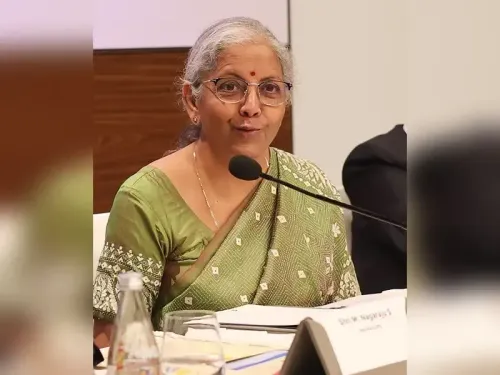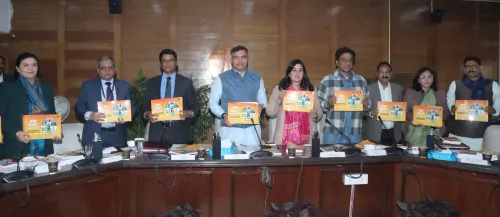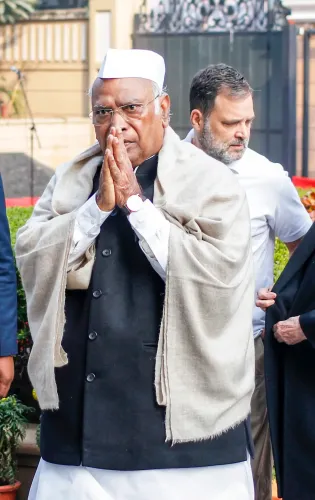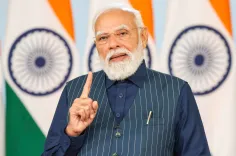How are Italian ports influencing IMEC and India's trade corridors?
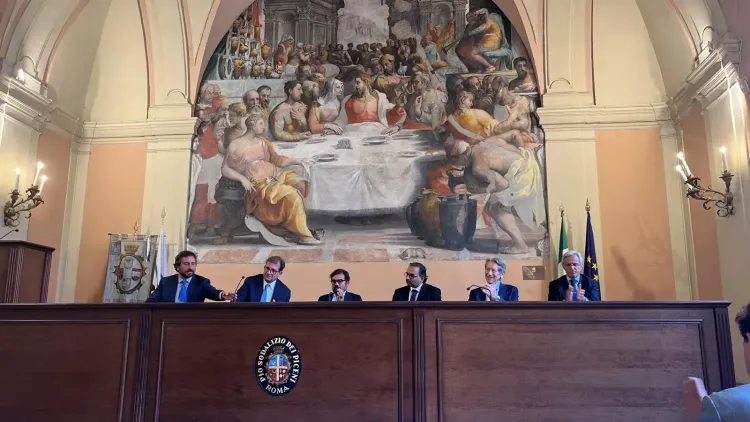
Synopsis
Key Takeaways
- IMEC is vital for trade connectivity.
- Italian ports can leverage Mediterranean positioning.
- Collaboration is essential for free global trade.
- Trieste stands out as a strategic trade hub.
- India's trade routes demand reliable partnerships.
Rome, Sep 30 (NationPress) Prominent Italian senators and industry experts convened on Tuesday to explore the increasing importance of the India-Middle East-Europe Economic Corridor (IMEC) and how Italy can optimize its strategic position in the Mediterranean through various trade corridors linked to India.
The gathering, named 'The Indo-Mediterranean Corridor: The Strategic Importance of Italian Ports for IMEC and India's Trade Corridors', took place at the San Salvatore in Lauro Complex in Rome, attracting institutional leaders, diplomats, and maritime professionals.
This event continues the Indo-Mediterranean initiative spearheaded by Vas Shenoy, the Chief Representative for Italy of the Indian Chamber of Commerce.
The dialogue included insights from Senator Giulio Terzi di Sant'Agata, Senator Matteo Gelmetti, Vice-President of the Foreign Affairs Committee of the Chamber of Deputies Paolo Formentini, Italian Ambassador and Special Envoy for IMEC Francesco Maria Talo, President of Assarmatori Stefano Messina, and Sanjay Pulipaka, Chairman of the Politea Research Foundation in Hyderabad. The discussion was moderated by Giorgio Rutelli, Deputy Director of ADNKronos.
"IMEC is a framework we should have faith in," asserted Senator Terzi, while Gelmetti emphasized that "India possesses unique qualities that render it a dependable and strategic ally." Talo highlighted that "Italy boasts more international ports than any other Mediterranean nation," and Messina stressed that "for the Blue Economy, IMEC is crucial."
Throughout the talks, Formentini underscored the necessity for a collective commitment to uphold free global trade, while Pulipaka concluded that "corridors represent relationships" with both political and human significance alongside commercial value.
The event occurred just before the implementation of the India-European Free Trade Association (EFTA) Trade and Economic Partnership Agreement (TEPA), which, starting October 1, intends to generate $100 billion in investments in India over the next 15 years, in return for tariff reductions on approximately 98% of products.
Switzerland, being the largest economy and most populous nation within EFTA, shares a border with Italy and necessitates specialized ports for its trade connections with India.
Introduced during the G20 Summit in New Delhi in 2023, with the involvement of Prime Minister Giorgia Meloni, IMEC remains a focal point in global infrastructure discussions. Trieste is highlighted as the natural port for this initiative, seamlessly linked to Italy’s and Europe’s industrial core.
The objective of the panel was not only to deliberate on Trieste and IMEC, but also to broaden the conversation regarding how Italy can capitalize on its Mediterranean positioning and derive benefits from additional India-linked trade corridors, including EFTA and TEPA.
"India's trade routes demand robust partners sharing common values. The relationship between Italy and India transcends IMEC and can serve as a vital alliance for both nations and the entire Indo-Mediterranean region in fostering sustainable trade," concluded Shenoy.



